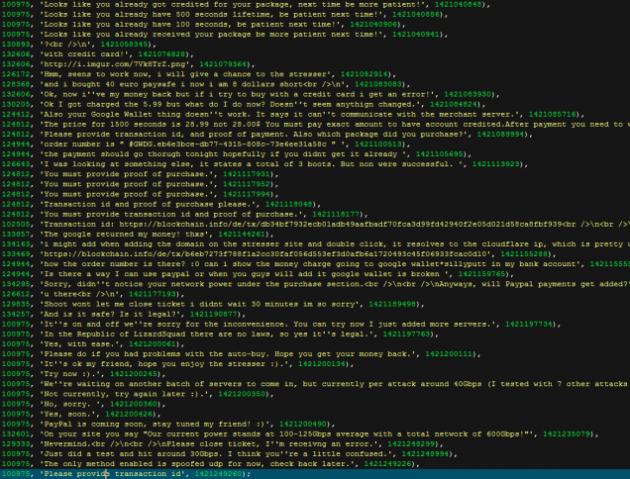Lizard Squad, the Hackers behind Sony and Microsoft Attacks, are Hacked, revealing customer information
It's quite ironic that a group of hackers got hacked.
The fate of hackers identified as Lizard Squad can easily have been taken straight out of a movie plot.
Lizard Squad is a group of hackers responsible for the attacks on the Playstation Network (PSN) and Xbox Live during the Christmas period last year. Using a DDoS service called LizardStresser, which it eventually released for a profit, Lizard Squad was able to launch a series of cyber-attacks Microsoft and Sony's gaming networks, making them unavailable.
The DDoS was priced between $6 and $500. The group offered its hacking services to people who wanted to take down other individuals' website.
But the most interesting thing happened: Lizard Squad's own website got hacked. Based on reports from security researcher Brian Krebs, the hackers' website was compromised, allowing the authorities to obtain a list of its database that included a list of all customer information and $11 thousand worth of bitcoin payments.

It became apparent that Lizard Squad only stored its customer information in plain text, something that is considered a major security blunder.
Although there were more than 14,200 registered users, only a handful actually paid for the DDoS-for-hire-service. The authorities in the United States and United Kingdom now have a copy of all the information they need to identify these users.
The hunt has already yielded results. After the Playstation and Xbox network attacks, the authorities were able to make some arrests. The first culprit to fall in the hands of police was Vincent Omari, 22-years old. He was arrested by the South East Regional Organised Crime Unit (SEROCU) on December 31.
The authorities were able to identify Omari's voice as the anonymous Lizard Squad member who spoke to BBC radio.
A 22-year old was arrested on New Year's Eve on suspicion of fraud by false representation and Computer Misuse Act of offenses. He's going to appear before the court in March 10.
Another arrest was made on January 16 by the Federal Bureau of Investigation and SEROCU. They arrested an 18-year old man for suspicions on unauthorized access to computer material, a violation of Section 1 of the Computer Misuse Act 1990.